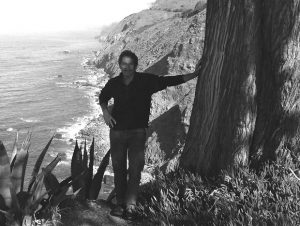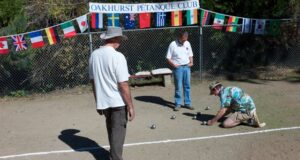There is much to be said of the adage, “If it ain’t broke don’t fix it.” Status quo, when compared to the darker alternatives of nearly everything, wins hands down. Getting older encourages the cliché more than anything else I might imagine.
We have inherited our parents’ and grandparents’ views, habits, and superstitions in regard to nearly everything. In this political and social climate, those who believe it ain’t broke or are in fear of how they might “break it” lean on that cliché with gusto and, frankly, I see nothing wrong with keeping one’s left up.
However.
There is one area where the saying makes little or no sense, and that is in regard to one’s own health. We have graduated to computers, iPhones, digital everything, hybrid this and hybrid that, and new medicines in a world that hungers for and is fed by a wonderful epidemic of fresh and changing science being explored to improve the human condition.
Nothing has been more informative and beneficial as the science of nutrition and the investigation into the causes and prevention of disease by making intelligent choices based on the latest science combined with common sense. We are in a world ravenous for information and we can expect the parade of discovery to continue.
Ironically, the most important information is all too quickly ceded to that pesky platitude in this offering’s first sentence! If it ain’t broke, don’t fix it. We feel fine, we appear so, and so we continue our days, months and perhaps years believing that whatever our process, it shouldn’t change.
That was my mantra for decades. I was always a bit nervous about my yearly physical: was something ticking away inside me I wasn’t aware of, something so subtle it slipped in between the cracks of assumptions?
Two years ago, on November 9 at 8:29 p.m. I appeared the same, felt the same, and took for granted my physical aim needn’t change.
One minute later my left side froze in numbness, the left side of my face drooped and my voice sounded unlike anything I had ever heard from myself. I knew exactly what was happening to me; I had responded to many stroke calls as a police officer.
A barrage of tests followed by weeks of serious depression left me with a realization. I had figured that it wasn’t broke. I had been regarding my heath peripherally, and had taken my health for granted based on defense. I was not at all proactive in my own heath!
During my convalescence I had numerous interviews with my doctors and it became quite apparent that my supervised neglect in understanding and caring for my body and mind had been taking a quiet but deliberate toll.
What part of my “ain’t broke” strategy was failing, or might fail again, if I don’t pay attention?
I was given a comprehensive evaluation which included things I hadn’t even imagined would and could affect my physical health. While my heart is important, and muscles are in agreement, what happens in my head with elements including stress, sleep, how well I communicate/or don’t — all of these affect my health.
It was clear I needed a hand, a coach. I have a close friend who saw me through my process and decided to create a program especially for me. She calls it “cross coaching.” Recovery has been an adventure and an exploration into my own habits, past and present. I’ve become my own advocate and proactive player in my longevity.
The bottom line is, don’t assume that it’s not broke only to find out it was in need of repair all along.
Glenn Raggio is a freelance writer living in the foothills.




